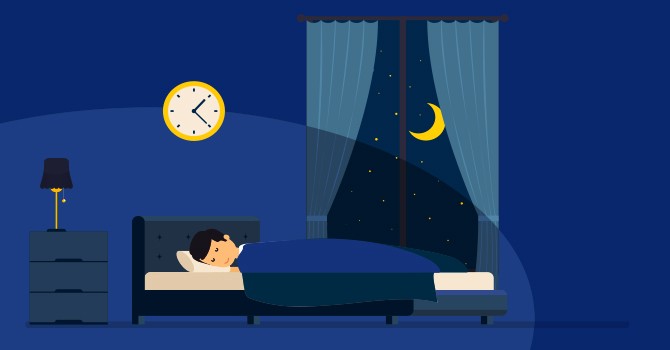Why Do I Need To Sleep?
January 31, 2022
My New Year’s resolution was to get more sleep, which I am sure is a common goal among many teens. I knew I needed at least 8-10 hours of sleep, but I soon realized I did not really know why I needed the sleep. I had not faced any repercussions, mental or physical, with my nightly 4 hours of shut-eye. So either you do not truly need the sleep, or I was missing something. I decided to go with my latter notion. This article will be diving into the benefits of a restful eight hours and consequences of sleep deprivation (spoiler: you actually need the sleep).
Sleep is necessary for allowing your body to heal and conserve its energy. According to Harvard Med, “Sleep provides an opportunity for the body to repair and rejuvenate itself”. In a recent study, they found that animals who did not sleep lost all immune function and died in only a few weeks. Sleep is truly crucial, not just to help your body recover, but to keep your body functioning. Well just because you do not feel any of the symptoms of sleep deprivation, does not mean they are not there. The Sleep Foundation reported that “people can develop a sort of tolerance to chronic sleep deprivation. Even though their brains and bodies struggle due to lack of sleep, they may not be aware of their own deficiencies because less sleep feels normal to them”. Just because you’ve learned to tolerate the lowered levels of sleep, doesn’t mean that it is healthy. Sleep helps your body repair any damage done during the day, and by limiting your recuperation time you are setting yourself up for further incapacitation.
But what really happens if you do not sleep? How does this affect your body? Simply put, your body’s cells start to alter and your body starts to respond as if it is under high levels of stress. According to researchers at Surrey University in Guildford “It puts your body on high alert for a wound but no wound happens… This could easily help explain the links between sleep deprivation and negative health outcomes such as heart disease and stroke.” (BBC). Sleep deprivation puts your body at risk for more serious consequences than drowsiness, including high blood pressure, weight gain, risk for diabetes, memory loss, and more. (Healthline). Many do not know or understand the long-lasting consequences of inadequate sleep. Slacking on sleep time does not just affect you now, it potentially destroys bodily functions you will use for the rest of your life.
So, how do you get to sleep? Eight hours is no laughing matter, especially if you are used to half of that amount. According to Mayo Clinic, you need to follow only these five crucial steps:
- Set a sleep schedule and stick to it. Going to bed and getting up at the same time reinforces your body’s sleep-wake schedule
- Watch what you are eating. Not going to bed hungry or stuffed prevents any discomfort from keeping you up. Also making sure to avoid nicotine, caffeine and alcohol for four to six hours before bed.
- Set the mood. Create a space that is ideal for sleeping. Typically this is cool, dark and quiet. Another option is doing some calming activities before bed, like taking a bath.
- Cut down on the daytime naps. If absolutely necessary, limit the nap to 30 minutes, so as to not interfere with your nighttime sleep.
- Manage your stress (as best as you can). Try to resolve any persistent worries or concerns before bed. A simple way to do this is to jot down what is on your mind to leave your concerns for tomorrow.
To conclude, sleep is necessary for good health and should be treated as a priority. Slacking on shut-eye is detrimental to your body and can offset any exercise or healthy eating. Though salvaging your sleep schedule may not be easy, there are small changes you can make every day to achieve a full eight hours.
Works Cited
https://healthysleep.med.harvard.edu/healthy/matters/benefits-of-sleep/why-do-we-sleep
https://www.bbc.com/news/science-environment-32606341
https://www.healthline.com/health/sleep-deprivation/effects-on-body#Prevention
https://www.mayoclinic.org/healthy-lifestyle/adult-health/in-depth/sleep/art-20048379
































